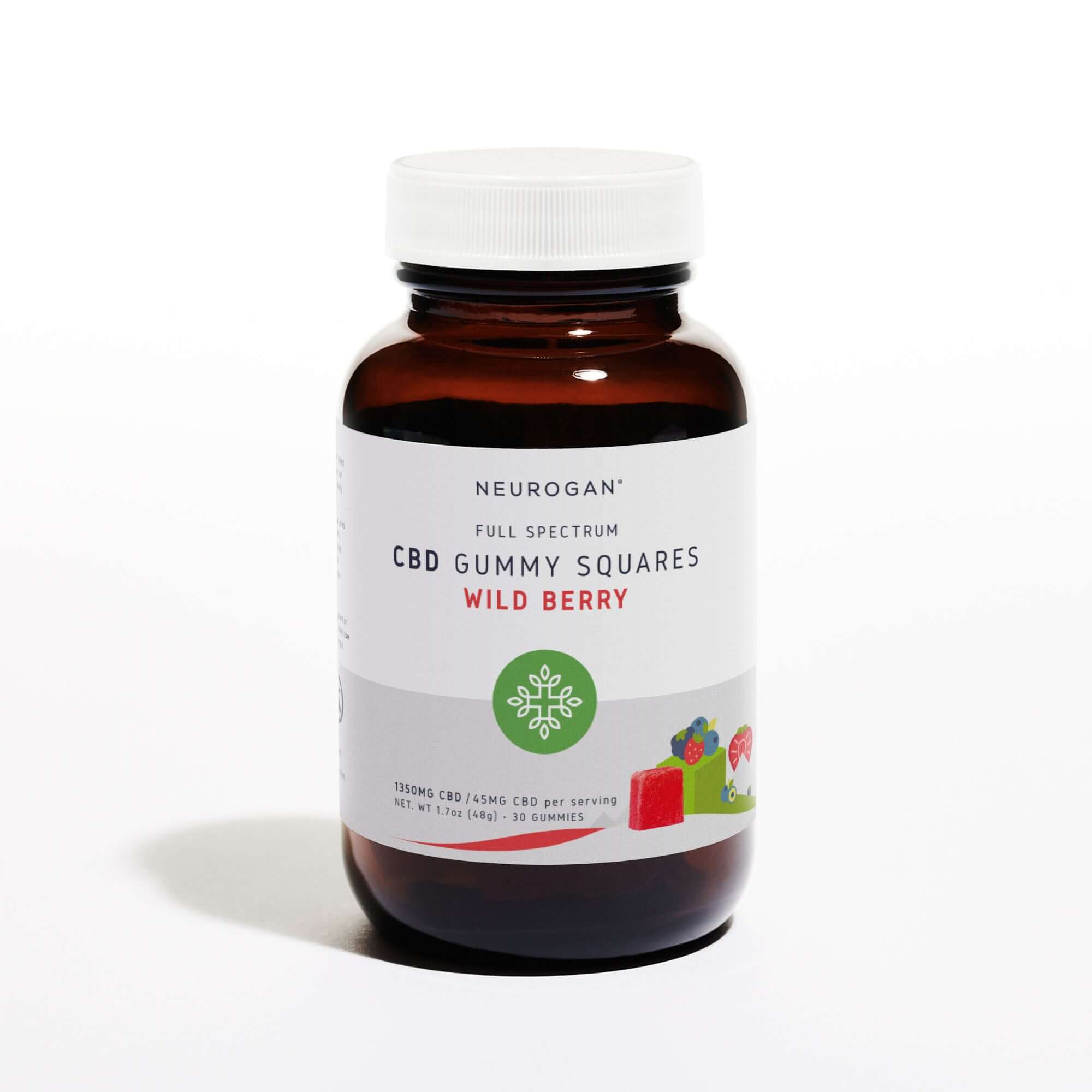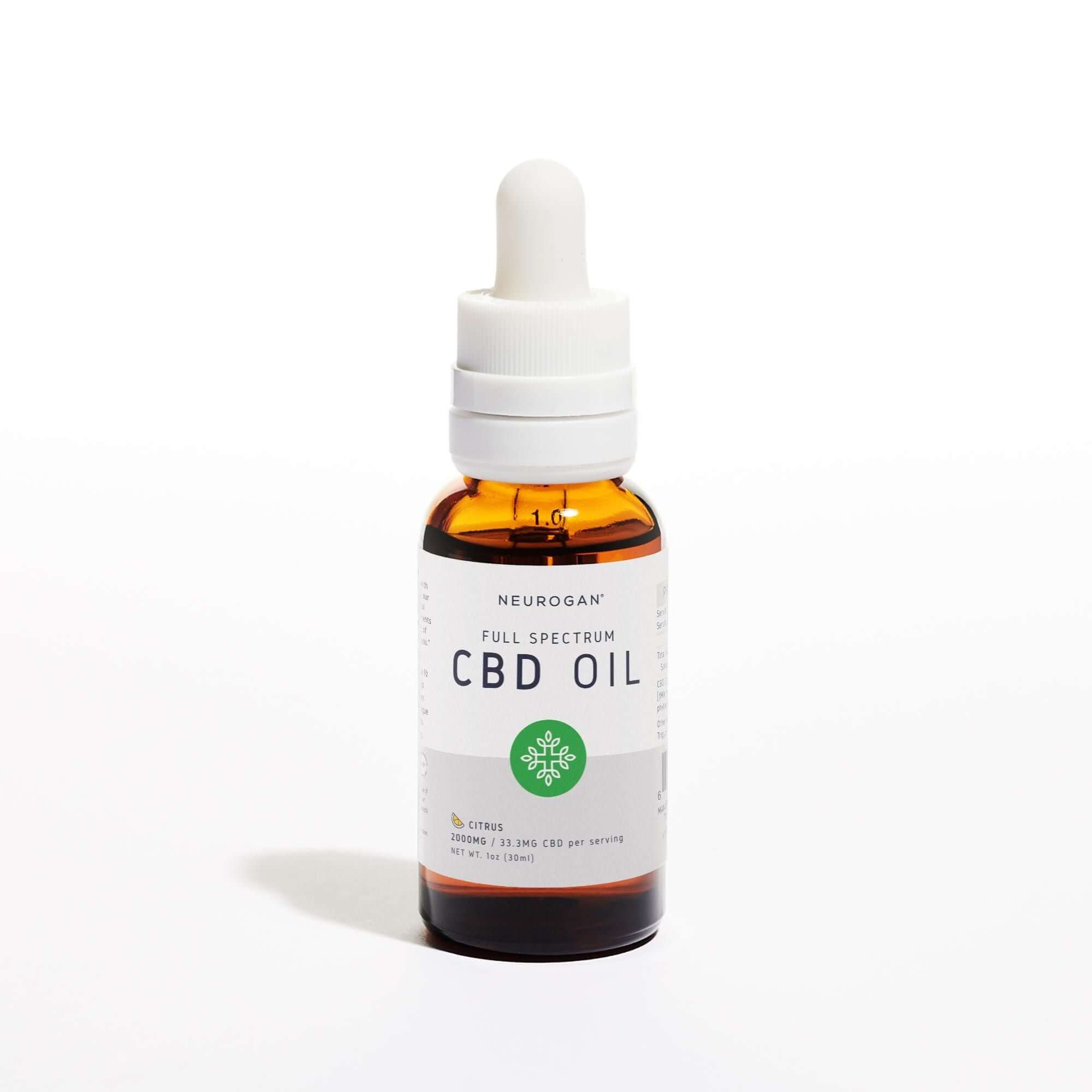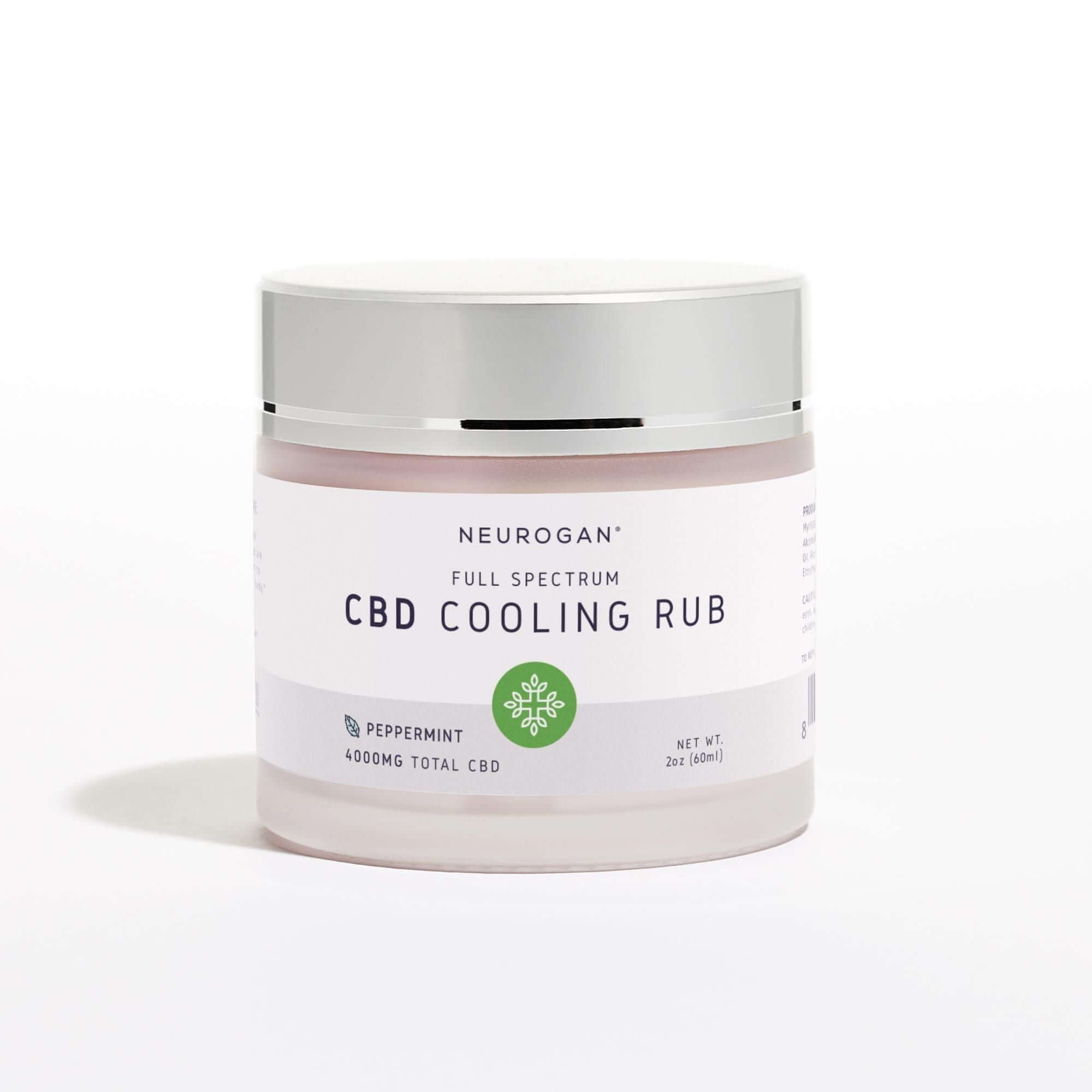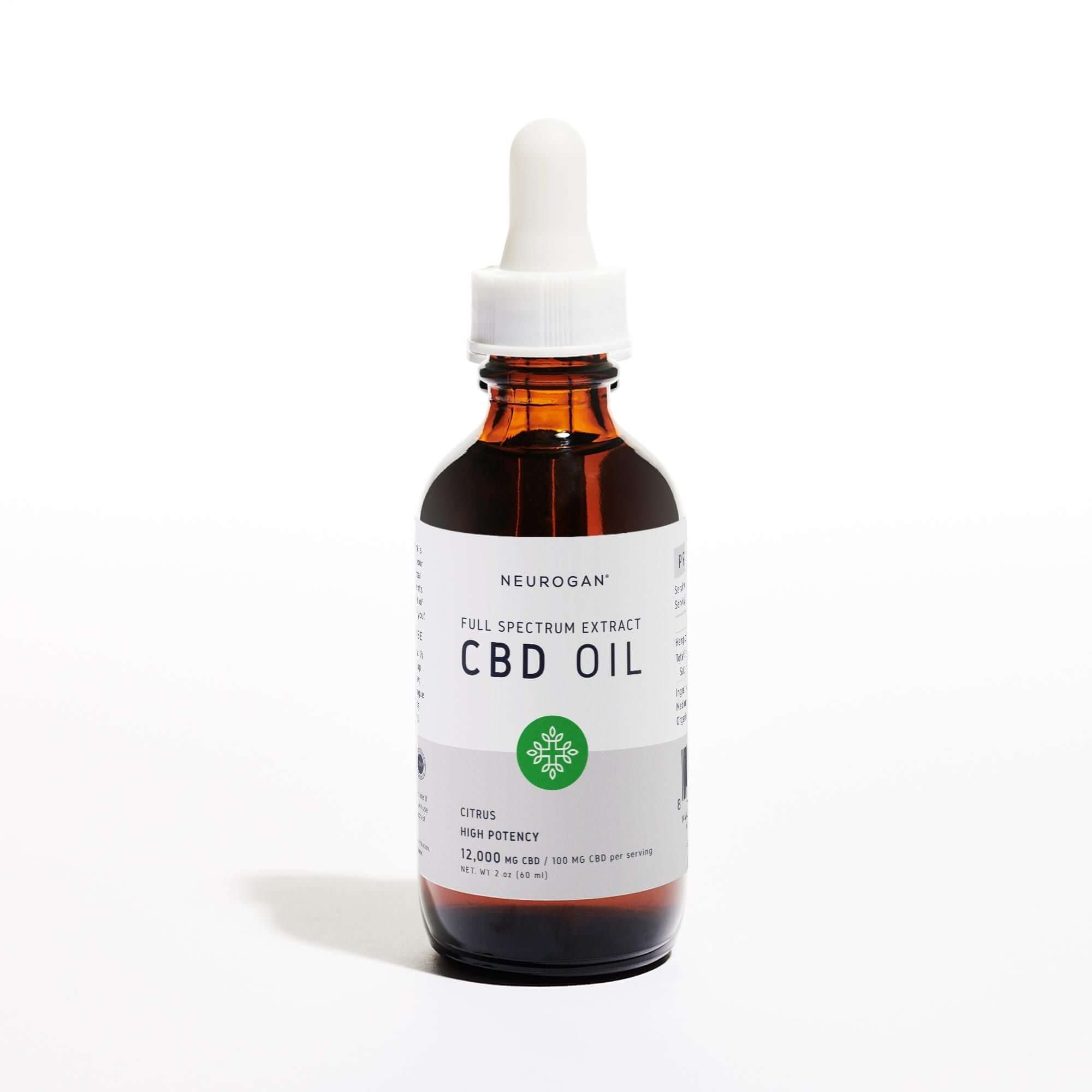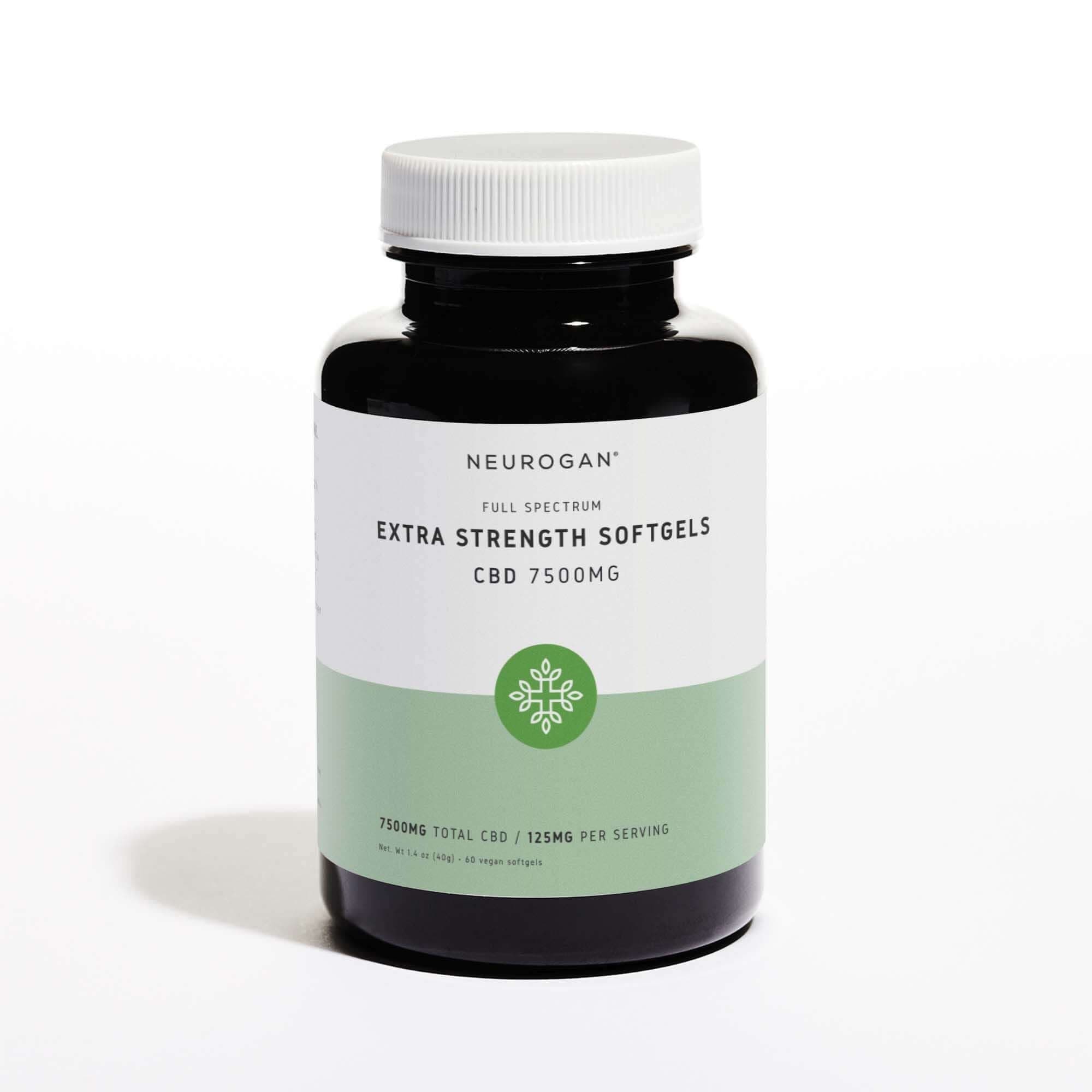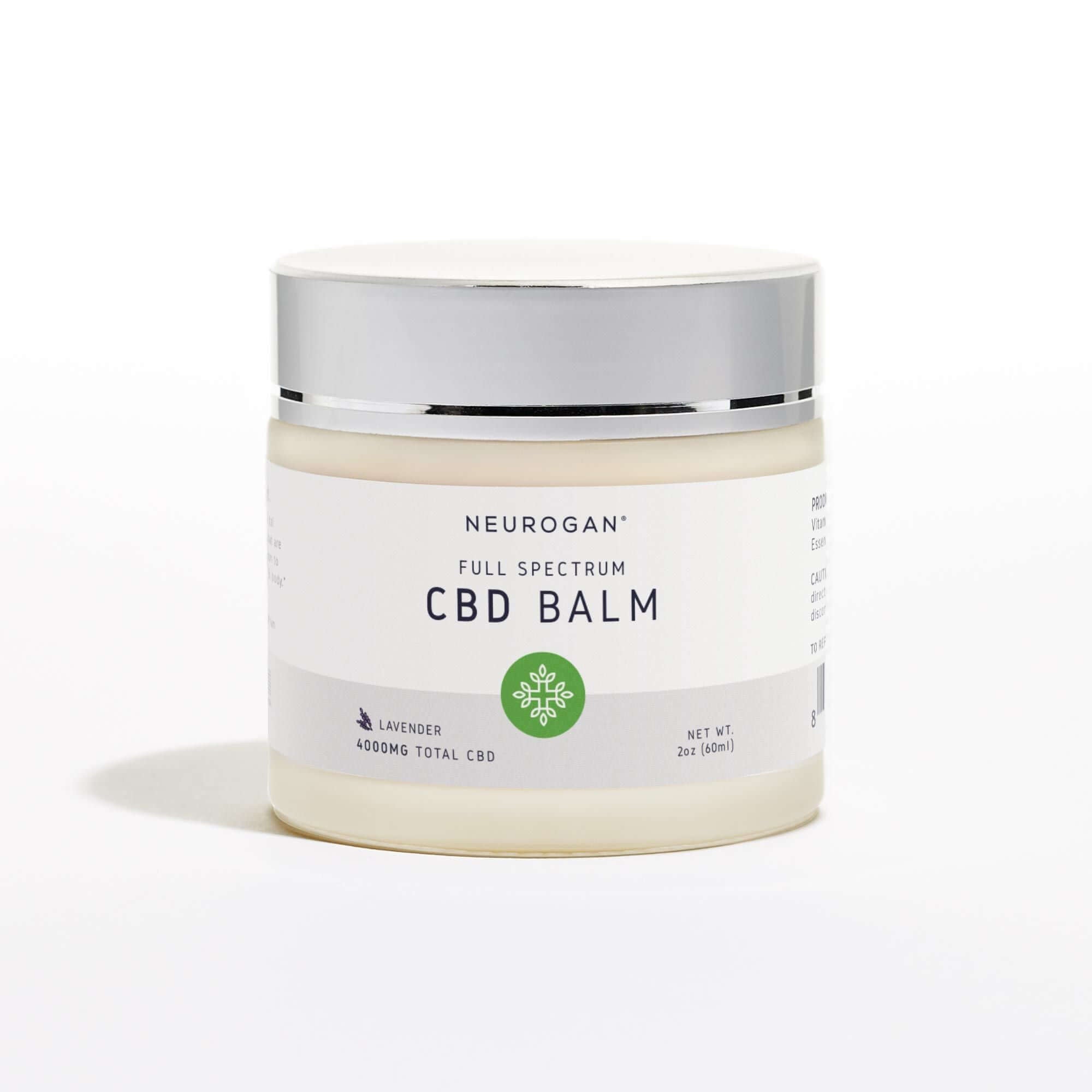Sleep is the foundation for health — it's when our bodies rest and repair themselves. When we don't get enough sleep, we're more likely to get sick, have trouble concentrating, and feel irritable.
While there are a lot of pharmaceutical sleep aid products on the market, many people are turning to CBD oils to help sleep as a natural option.
CBD, or cannabidiol, is a compound found in the cannabis plant. Unlike THC, CBD does not produce a high and is not physically addictive. CBD oils are thought to work by reducing anxiety, pain, and increasing sleep quality.
In this article, we'll dive into the health benefits of CBD and how to source the best CBD oil for sleep.
8 Best CBD Oils For Sleep in 2024
- The Strongest & Most Effective: Neurogan CBN Oil Night time
- The Lighter Option: CBDistillery 150mg CBN + 450mg CBD Oil Tincture
- The Cannabinoid Mixer: Lazarus Naturals Sleep Tincture
- The Real Slumber Mixer: Slumber CBN CBN Tincture for Sleep
- The Tranquility Oil: Batch Dream CBD Oil Tincture
- The Safest Perfect Dosage:Neurogan CBN Tincture for sleep
- The THC-Free Option: 3Chi Sleep CBD Oil
- The Original CBD:CBDFx CBD Oil Sleep Tincture 1000-4000mg
| Brand | Price | Total CBD Content | CBD per SERVING | Price per MG/CBD | Serving Size | No. of Servings |
|---|---|---|---|---|---|---|
| Neurogan's CBN Oil Nighttime 12000mg | $165 | 6000mg CBD+6000mg CBN | 50mg CBD+50mg CBN | $0.014 | 0.5ml | 120 |
| CBDistillery CBN 150MG + CBD 450mg Tincture |
$60 | 450mg CBD+150mg CBN | 15mg CBD+3mg CBN | $0.1 | 1ml | 30 |
| Lazarus Naturals Sleep Tincture | $40 $120 |
900mg CBD+300mg CBN+300mg CBG 3600mg CBD+1200mg CBN+1200mg CBG |
30mg CBD+10mg CBN+10mg CBG | $0.027 $0.02 |
1ml | 30 120 |
| Slumber CBN Tincture for Sleep | $34.98 $44.95 $59.95 |
150mg CBN 300mg CBN 600mg CBN |
10mg CBN 10mg CBN 20mg CBN |
$0.23 $0.15 $0.1 |
1ml | 15 30 30 |
| BatchCBD Dream Oil Tincture | $74.99 $129.99 |
1000mg CBD 3000mg CBD |
16.7mg CBD 50mg CBD |
$0.075 $0.043 |
0.5ml | 60 60 |
| Neurogan CBN Tincture for Sleep | $95 | 2000mg CBD+2000mg CBN | 16.6mg CBD+16.6mg CBN | $0.023 | 0.5ml | 120 |
| 3CHI Sleep CBD Oil | $49.99 $79.99 $99.99 $179.99 $279.99 |
500mg CBD 1000mg CBD 1500mg CBD 3000mg CBD 5000mg CBD |
16.7mg CBD 33.3mg CBD 50mg CBD 100mg CBD 166.7mg CBD |
$0.1 $0.08 $0.066 $0.06 $0.056 |
1ml | 30 |
| CBDFx CBD Oil Sleep Tincture |
$69.99 |
1000mg CBD+150mg CBN 2000mg CBD+300mg CBN 4000mg CBD+600mg CBN |
33.3mg CBD+5mg CBN | $0.06 $0.04 $0.03 |
1ml | 30 |
1. Neurogan's CBN Oil Nighttime 12000mg

Emerging as a powerful contender in the realm of CBD products for sleep, this blend boasts a striking 12,000mg of both CBD and CBN, ensuring a balanced and potent solution. Neurogan place their roots firmly on their background from Denmark, but plant their ideas and creation on the U.S. soil, proving their commitment to premium & innovative quality.
The product is designed to deliver, with each serving containing a robust 50mg each of CBD and CBN. This ensures a night of improved relaxation and deep sleep.
The oil includes a natural citrus flavor, as noted by several reviewers, strikes a fine balance, making each drop palatable. What further sets it apart is its dedication to quality.
Feedback from customers predominantly revolves around its effectiveness. Many have praised its ability to offer a night of restful sleep. For instance, one user commented on how the product significantly curbed their chronic pain, aiding in a peaceful night's sleep.
Every batch is lab-tested, ensuring it's vegan, and the hemp is ethically sourced from the U.S.
Price: $165
Total CBD/CBN Content: 6000mg CBD + 6000mg CBN
Serving Size: 0.5 ml per serving
CBN/CBD Per Serving: 50mg CBD + 50mg CBN
Flavor: Natural Citrus
Discounts: Subscribe & Save 25% per bottle
Pros:
-
CBD + CBN formula
-
Cheapest price per MG compared to other brands
-
High Potency, but Safe.
Cons:
-
High Dosage may be too much for beginners
2. CBDistillery CBN 150MG + CBD 450mg Tincture

Emerging from the bustling CBD hub of Denver, Colorado, CBDistillery has solidified its reputation since 2016, two years before the CBD industry blew away. The brand stands tall on its mission to deliver top-quality hemp-derived CBD products without the premium price tag. With a broad range of offerings, from oils to topicals, they cater to a diverse consumer base, ensuring everyone has an opportunity to experience the benefits of CBD.
CBDistillery 150mg CBN + 450mg CBD Oil Tincture underscores the brand's innovative approach. Designed as a natural hemp-flavored dropper, it showcases a 1:3 CBD to CBN ratio, ensuring consumers receive a balanced wellness experience.
Each serving, measured at 1ml, provides a dose of 15mg CBD and 5mg CBN for the users who prefer a milder choice.
Feedback leans on the positive side, with many users acknowledging the sleep benefits of the tincture. One user, reflecting on their extensive law enforcement career, mentioned how the product helps them achieve the much-needed rest their body craves. However, there's a shared sentiment among some reviewers about its potency. As one reviewer pointed out, they desired "something with more strength."
Price: $60
Total CBD/CBN Content: 450mg CBD + 150mg CBN
Serving Size: 1 ml per serving
CBN/CBD Per Serving: 15mg CBD + 3mg CBN
Flavor: Natural Hemp
Discounts: Subscribe & Save 30% per bottle
Pros:
-
Full Spectrum
-
CBD + CBN Formula
Cons:
-
Low Potency
-
No higher dosage option available
3. Lazarus Naturals Sleep Tincture
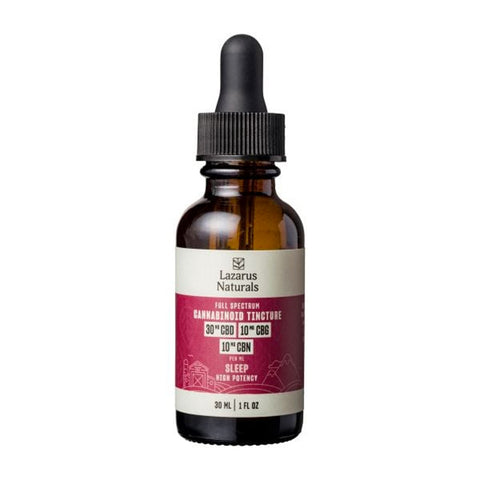
Founded in 2014 by Sequoia Price-Lazarus, Lazarus Naturals carries a strong legacy of offering farm-to-product CBD solutions, including different variations of oil and pet items. Sourcing its organic, non-GMO hemp directly from Oregon's verdant fields, the brand wears its dedication to quality and affordability like a badge of honor.
Dive into a holistic wellness experience with Lazarus Natural's tincture, which seamlessly merges CBD, CBN, and CBG. With options in 30ml and 120ml bottles, users are promised a meticulously crafted 3:1 CBD to CBN ratio. Each 1ml serving encapsulates not only the pain & sleep relieving induced by CBD and CBN but the focused benefits of CBG.
Users often highlight the tincture's transformative impact on their sleep. While its potency in inducing rest is frequently shared, a few have raised concerns about its stark natural hemp taste.
Some reviewers even mentioned its unpleasant flavor but vouched for its efficacy, suggesting its taste as a small trade-off for better sleep.
Price: $40 | $120
Total CBD/CBN Content: 900mg CBD + 300mg CBN
Serving Size: 1ml per serving
CBN/CBD Per Serving: 30mg CBD + 10mg CBN + 10mg CBG
Flavor: Natural Hemp
Discounts: Free Shipping on Orders $50+
Pros:
- Enriched with CBG for enhanced benefits.
- The option for a bigger bottle is available.
Cons:
-
CBG is utilized for enhancing focus, which works in contrast from the CBN properties.
4. Slumber CBN Tincture for Sleep

Slumber, committed to promoting better sleep, offers quality CBD and CBN products sourced from sustainably grown hemp in Colorado. With their clear focus on sleep, they provide a range of products from tinctures to gummies and capsules, all available with full details on their website.
Slumber’s CBN Tincture is designed to guide you to restful nights. Depending on your preference, choose from tinctures with 10mg CBN per serving or a more potent 20mg version. The pleasant Dreamsicle flavor mixes vanilla and orange, adding to the appeal of the tincture.
Beyond CBN, the tincture also includes terpenes Linalool and Beta-Caryophyllene, known to enhance the benefits of CBN.
For those concerned about THC, this product is completely THC-Free.
Users appreciate the range of options Slumber provides and the inclusion of beneficial terpenes. The product’s flavor gets a thumbs-up, and its lack of THC is a relief for many.
However, some hope for a larger bottle option and note the price might be on the higher side compared to similar products.
Price: $34.98 | $44.95 | $59.95
Total CBD/CBN Content: 150mg | 300mg | 600mg
Serving Size: 1ml per serving
CBN/CBD Per Serving: 10mg | 10mg | 20mg
Flavor: Dreamsicle (Vanilla + Orange Botanicals)
Discounts: Subscribe & Save 20% per bottle
Pros:
-
THC-Free
-
Different Variations
- Added terpenes like Linalool & Beta-Caryophyllene
Cons:
-
Biggest Bottle is 30ml
5. BatchCBD Dream Oil Tincture

Originating from Wisconsin, BATCH has swiftly marked its territory in the CBD sphere, showcasing a broad spectrum of products, from tinctures and gummies to topicals. What differentiates them is their dedication to transparency and quality; they even welcome customers for lab visits, instilling trust and underscoring their commitment to genuine, top-notch products.
BATCH's Dream CBD Oil Tincture, available in 1000mg and 3000mg concentrations, is specifically tailored for those seeking better sleep. It's not just another CBD oil; its strength lies in the "Dream Terpene Blend", a specialized mixture encompassing terpinolene, myrcene, and linalool.
These terpenes have been selected for their therapeutic attributes, from promoting relaxation to offering anti-inflammatory benefits.
Many users appreciate the tincture's distinctive terpene combination and the palate-friendly mint touch.
However, feedback suggests that the product, while high in quality, leans on the pricier side.
Price: $74.99 | $129.99
Total CBD/CBN Content: 1000mg | 3000mg
Serving Size: 0.5 ml per serving
CBN/CBD Per Serving: 16.7mg CBD | 50mg
Flavor: Hint of Mint Flavor
Discounts: Subscribe & Save 25% per bottle
Pros:
-
Enhanced with Terpinolene, Myrcene, & Linalool
-
Slight taste of Mint which removes the strong CBD bitterness
Cons:
-
Uses ethanol extraction methods
-
Expensive
6. Neurogan CBN Tincture for Sleep

With a reputation solidified by their previous products, Neurogan continues its quest for excellence in the CBD market. Based on its wide acclaim, this brand from San Diego knows how to strike the right balance between potency and price.
The Neurogan CBD + CBN Oil Tincture showcases the brand's commitment to premium quality. With a 1:1 CBD to CBN ratio, every 0.5ml serving provides a balanced 16.6mg of both CBD and CBN. While it may not be their most potent product, this blend is still a force to be reckoned with, especially for those seeking tranquility & sleep.
This tincture isn't just about numbers and flavors; it's about real results. Numerous users have lauded its effectiveness, especially in promoting better sleep patterns & instilling a sense of calm.
This blend is more than just another CBD product; it's a reliable companion for relaxation and nighttime serenity.
Price: $95
Total CBD/CBN Content: 2000mg CBD+2000mg CBN
Serving Size: 0.5 ml per serving
CBN/CBD Per Serving: 16.6mg CBD + 16.6mg CBN
Flavor: Natural Citrus Flavor
Discounts: Subscribe & Save 25% per bottle
Pros:
-
Full Spectrum
-
The best infused CBD + CBN formula
-
Cheapest price per MG
7. 3CHI Sleep CBD Oil

3CHI, established by an adept biochemist, pioneered the hemp industry by prioritizing not only CBD but also the lesser-known cannabinoids. This brand notably became the first to introduce products containing CBN & Delta 8 THC. With a focus on cannabis legalization and high-quality production, 3CHI’s overarching goal is to unlock the full potential of hemp's cannabinoids for optimal health, sleep, & well-being.
The CBD Sleep Oil from 3CHI is designed for individuals seeking enhanced sleep quality. With a versatility that spans five different potencies, ranging from 500mg up to a robust 5000mg of CBD, it allows users to find their ideal dosage. Each 1ml serving delivers between 16.7mg and 166.7mg of CBD. For those concerned about THC, this tincture is THC-free, ensuring users gain the therapeutic benefits without the psychoactive effects.
Users have often expressed their satisfaction with the oil's ability to promote better sleep. Many found it more effective than other remedies, such as melatonin.
A particular user mentioned a marked improvement in sleep duration and depth since starting on this oil.
Price: $49.99 | $79.99 | $99.99 | $179.99 | $279.99
Total CBD/CBN Content: 500mg CBD | 1000mg CBD | 1500mg CBD | 3000mg CBD | 5000mg
Serving Size: 1ml per serving
CBN/CBD Per Serving: 16.7 | 33.3 | 50 | 100 | 166.7
Flavor: Unflavored
Discounts: Free Standard shipping for orders over $99+
Pros:
-
Wide Range of potency options
-
Broad Spectrum THC-Free Option
Cons:
-
No return policy offered
8. CBDFx CBD Oil Sleep Tincture

CBDfx stands as a hallmark of quality in the CBD industry, taking pride in sourcing its hemp from regulated farms in Kentucky. Renowned for a unique extraction method, CBDfx guarantees a product rich in potent CBD, ensuring the most authentic and effective experience for its users.
This blend promises deep, restful sleep without the morning drowsiness or the negative aspects associated with traditional sleeping aids. Non-addictive and side-effect-free, this tincture is a ticket to a peaceful night, all the while harnessing the calming properties of melatonin.
The feedback for the CBDfx Sleep Tincture leans significantly positive. Users laud its efficacy in enhancing sleep quality, especially when paired with THC products. Many appreciate the quick results and the profound sleep improvement. The most frequent critique is its unflavored nature, resulting in a bitter taste, although some users have found creative solutions like mixing it with juices.
Price: $69.99 | $99.99 | $149.99
Total CBD/CBN Content: 1000mg CBD+150mg CBN | 2000mg CBD+300mg CBN | 4000mg CBD+600mg CBN
Serving Size: 1ml per serving
CBN/CBD Per Serving: 33mg CBD+5mg CBN
Flavor: Unflavored
Discounts: 15% off with promo code: CHILL
Pros:
-
Enhanced with 5mg melatonin per serving
-
Medically Reviewed
Cons:
-
Unflavored, bitter taste
How Does CBD Oil Work For Sleep?
Interested in learning how to use CBD oil to help sleep? First, it's worth understanding CBD oil and its interaction with the body to produce these health benefits.
CBD, or cannabidiol, is the main active compound in hemp plants that interacts with the body's endocannabinoid system. This system regulates various functions, including mood, appetite, pain perception, inflammation, and the sleep-wake cycle.
CBD binds to receptors in the endocannabinoid system, which is found throughout the body, and alters how these receptors send signals — all used to keep the body in a state of homeostasis (balance).
How can you use CBD oil to help sleep?
Unlike sleep meds that shut down the central nervous system, CBD is thought to work by interacting with endocannabinoid receptors in the brain that regulate the sleep/wake cycle. It doesn't shut off the brain but instead helps the system slow down the stress response so that the body can naturally feel sleepy.
CBD has also been shown to reduce inflammation and pain, which may contribute to its ability to improve sleep.
How Are People Using CBD Oil To Help Sleep?
CBD is available in various forms, including oils, capsules, and edibles. It can be taken orally or applied topically.
The best way to use CBD oil for sleep is to use products consistently.
CBD hasn't been proven to be a sedative compound.
This is because it doesn't shut down the central nervous system like conventional pharmaceutical sleep aids. Instead, it works with the endocannabinoid system to restore the circadian rhythm to homeostasis (balance).
To use CBD or CBN as a sleep aid, you'll need to adjust the CBD oil dosage, upwards of 50–100 mg (or more, depending on the person).
CBD is a dose-dependent compound and can work differently for everyone, so you may find that you will need to experiment with different CBD oil products, doses, and even cannabinoids to find what works best for you, which is why we have so many options available for you to choose from at Neurogan.
Where to Buy CBD Oil for Sleep
There are many CBD brands out there that promise to improve sleep quality, but many CBD products underdeliver.
The CBD industry is riddled with ineffective and sometimes potentially dangerous products, so important to do your research before purchasing CBD products online or in stores.
Look For Full Spectrum Or Broad Spectrum CBD
The best hemp tinctures are from full spectrum or broad spectrum hemp extract. These extract types contain many of the beneficial components of hemp to support CBD's effects on the endocannabinoid system. These hemp compounds include minor cannabinoids, terpenes, and fatty acids.
CBD products made with CBD isolate only contain one active ingredient.
And while you'll still get some CBD benefits with CBD isolate, you're lacking in the full potential of the hemp plant.
You may find that you need higher doses of the CBD isolate product to reach the same level of effects as your Neurogan full spectrum or broad spectrum CBD oil for sleep.
High Potency CBD
CBD has been found to be more effective as a sleep aid in higher doses, which is why the Neurogan CBD oil products for sleep come in high potencies.
While it's important to start with low doses and work your way up gradually with cannabinoids, CBD in high doses upwards of 200 mg has been well tolerated in humans [3].
If you find that your CBD product isn't doing the trick for your sleep, you may need to try something stronger.
Third-Party Lab Tested
CBD oil is gaining popularity as a natural remedy for various health conditions, but not all CBD oil is created equal. In order to ensure that you are getting a high-quality product, it's important to look for products that have been independently tested by a third-party lab.
These labs use rigorous testing methods to verify CBD's concentration and check for contaminants such as heavy metals or pesticides.
All Neurogan products are tested in-house and through independent labs to ensure the highest quality standards are met. You can find a copy of the lab results for their specific batch of products on our website, allowing you to see the results for yourself.
By only purchasing CBD products like including CBD oils and CBD gummies that have been third-party lab tested, you can be sure that you are getting a safe and effective product.
High-Quality Ingredients
In order to ensure that you are getting the most out of your CBD oil to help sleep, it is important to look for products that contain high-quality ingredients.
Choosing a CBD product made with organic hemp oil or coconut oil will ensure that the CBD, CBN, and sleep terpenes remain potent and fresh. Regarding gummies for sleep, ensure the formula is low in sugar and doesn't contain any unnecessary fillers that can lead to stomach upset.
By finding a high-quality CBD product, you can be sure that you are getting the most out of the hemp plant.
Signs Of An Irregular Sleep Schedule
We have an internal body clock called the "circadian rhythm" that regulates when we should feel sleepy or more alert. This natural cycle is set by the sun's rising and setting, but it can be thrown off by travel, work demand, and many other lifestyle factors.
As a result, many people find themselves with an irregular sleep schedule. While this is harmless in most cases, some people find that these regular sleep disturbances can lead to several serious health problems.
Some of the most common signs of an irregular sleep schedule include difficulty falling asleep, waking up frequently during the night, feeling tired during the day, and struggling to focus on tasks.
These symptoms can make it difficult to function at work or school and lead to serious accidents.
You should speak with your doctor if you are experiencing these signs regularly. Your healthcare professional may be able to help you develop a sleep hygiene plan that can get your circadian rhythm back on track.
CBD And The Circadian Rhythm
CBD has been shown to interact with the body's endocannabinoid system, which regulates many important functions, including the sleep/wake cycle, otherwise known as the circadian rhythm.
Research suggests that CBD oils improve sleep quality and anxiety levels in animals. Some human trials have shown CBD and other cannabinoids to improve sleep quality. While more research is needed in this space, it hasn't stopped well-informed health seekers from turning to CBD oils for sleep.
Shop The Best CBD Oil For Sleep

Neurogan CBD oil is quickly becoming a trusted tool for many people looking for a good night's rest, and for good reason. The health benefits of CBD are numerous, from inflammatory support to discomfort management and stress reduction.
If you're looking for a natural sleep solution, consider trying Neurogan CBD oil to help sleep.
At Neurogan, we offer an extensive range of premium-quality CBD oil products sourced from organic hemp plants, backed with a risk-free guarantee.
We offer our best CBD oil for sleep because we know that everyone has different needs with their CBD oils and that some products may work better for others, depending on what's causing their sleep issues.
Our 30-day money-back guarantee on all Neurogan products offers you peace of mind when shopping. If you find that your CBD oil isn't working for you, feel free to reach out to our team, who can assist you in finding another CBD product.
FAQ
What is the best CBD oil for Sleep?
Consider trying Neurogan CBD oil to help you sleep if you're seeking for a natural sleep remedy. Customers have relied on Neurogan's high-potency CBD products to relieve pain and inflammation, which are common causes of insomnia.
When to take CBD oil for Sleep?
CBD oil for sleep is best taken an hour before bedtime to improve the quantity and quality of sleep by reducing anxiety and promoting relaxation.
How to take CBD oil for Sleep?
CBD can be consumed orally or administered topically. The most effective approach to use CBD oil for sleep is to use it on a regular basis.
Can CBD oil help you with sleep issues?
CBD helps the system tone down the stress reaction so that the body can sleep naturally. CBD has also been demonstrated to lower inflammation and pain, which may help it improve sleep.
Resources:
-
Qin, N., Neeper, M. P., Liu, Y., Hutchinson, T. L., Lubin, M. L., & Flores, C. M. (2008). TRPV2 is activated by cannabidiol and mediates CGRP release in cultured rat dorsal root ganglion neurons. Journal of Neuroscience, 28(24), 6231-6238.
-
Russo, E. B. (2019). The case for the entourage effect and conventional breeding of clinical cannabis: no “strain,” no gain. Frontiers in plant science, 9, 1969.
-
Shannon, S., Lewis, N., Lee, H., & Hughes, S. (2019). Cannabidiol in anxiety and sleep: a large case series. The Permanente Journal, 23.
Disclaimer
The statements made regarding these products have not been evaluated by the Food and Drug Administration. These products are not intended to diagnose, treat, cure or prevent any disease. All information presented here is not meant as a substitute for or alternative to information from health care practitioners. Before using any product, please consult your doctor about potential interactions or other possible complications.









